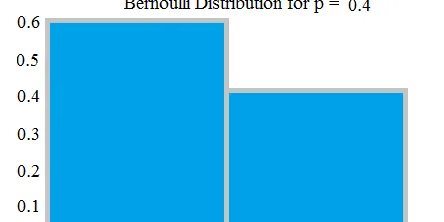random variable

But what is a Random Variable ?
Often simple concepts become difficult to grasp because of the terminology and the context in which they are applied. Random Variable was one such confusing (even though simple in the hindsight)…
📚 Read more at Towards Data Science🔎 Find similar documents

“Random Variable: Where Chance Meets Numbers — The Math's of Mapping Uncertainty ”
Random variables are ways to map outcomes of random processes (also refereed as experiments) to numbers. A R andom variable in statistics is a function that assigns a real value to an outcome in the s...
📚 Read more at The Pythoneers🔎 Find similar documents

What are Random Variables
Random variable becomes a nightmare for people when they first encounter it in Probability or Statistics course. In this blog, I will take you through random variables. What if I say random variables…...
📚 Read more at Towards Data Science🔎 Find similar documents

Random Variables
In Section 2.6 we saw the basics of how to work with discrete random variables, which in our case refer to those random variables which take either a finite set of possible values, or the integers. In...
📚 Read more at Dive intro Deep Learning Book🔎 Find similar documents

How to generate random variables from scratch (no library used)
Random variables are an integral part of data science, machine learning, and statistical modeling. They play an increasingly important role in the systems and services around us that employ…
📚 Read more at Towards Data Science🔎 Find similar documents

Random Variables and Probability Distributions
Master the random variables and probability distributions and crack your next Data Science Interview with the third part of our Statistics Cheat Sheet series Photo by Naser Tamimi on Unsplash Random ...
📚 Read more at Towards Data Science🔎 Find similar documents

An Introduction to Random Variables & Probability Distribution
Random Variables: A random variable represents the outcome of statistical experiments on numerical values. Discrete Random variables: A variable that can take only the countable number of values. For…...
📚 Read more at Python in Plain English🔎 Find similar documents

Understanding Transformation of Random Variables using Python
A random variable is a numerical description of the outcome of a statistical experiment. It can be discrete or continuous depending upon the outcome of experiment. We would be looking at two kinds of…...
📚 Read more at Analytics Vidhya🔎 Find similar documents

Understanding Random Variables
Random variables are very important in statistics and probability and a must have if any one is looking forward to understand probability distributions. Random Variables many a times confused with…
📚 Read more at Towards Data Science🔎 Find similar documents

Generate Random Variable Using Inverse Transform Method in Python
In simulation theory, generating random variables become one of the most important “building block”, where these random variables are mostly generated from Uniform distributed random variable. One of…...
📚 Read more at Towards Data Science🔎 Find similar documents

The Aspiring Statistican’s Introduction to Random Variables
Pixabay (License) When it comes to yelling “Surprise!”, the universe never gets tired. In this article, we’ll take a contemplative walk across the land of chance. We’ll learn about random walks, about...
📚 Read more at Towards Data Science🔎 Find similar documents

Ace Probability and Statistics in Interviews
Ans: A random variable is a variable whose value is unknown or a function that assigns values to each of an experiment’s outcomes. Random variables are often designated by letters and can be…
📚 Read more at Analytics Vidhya🔎 Find similar documents


